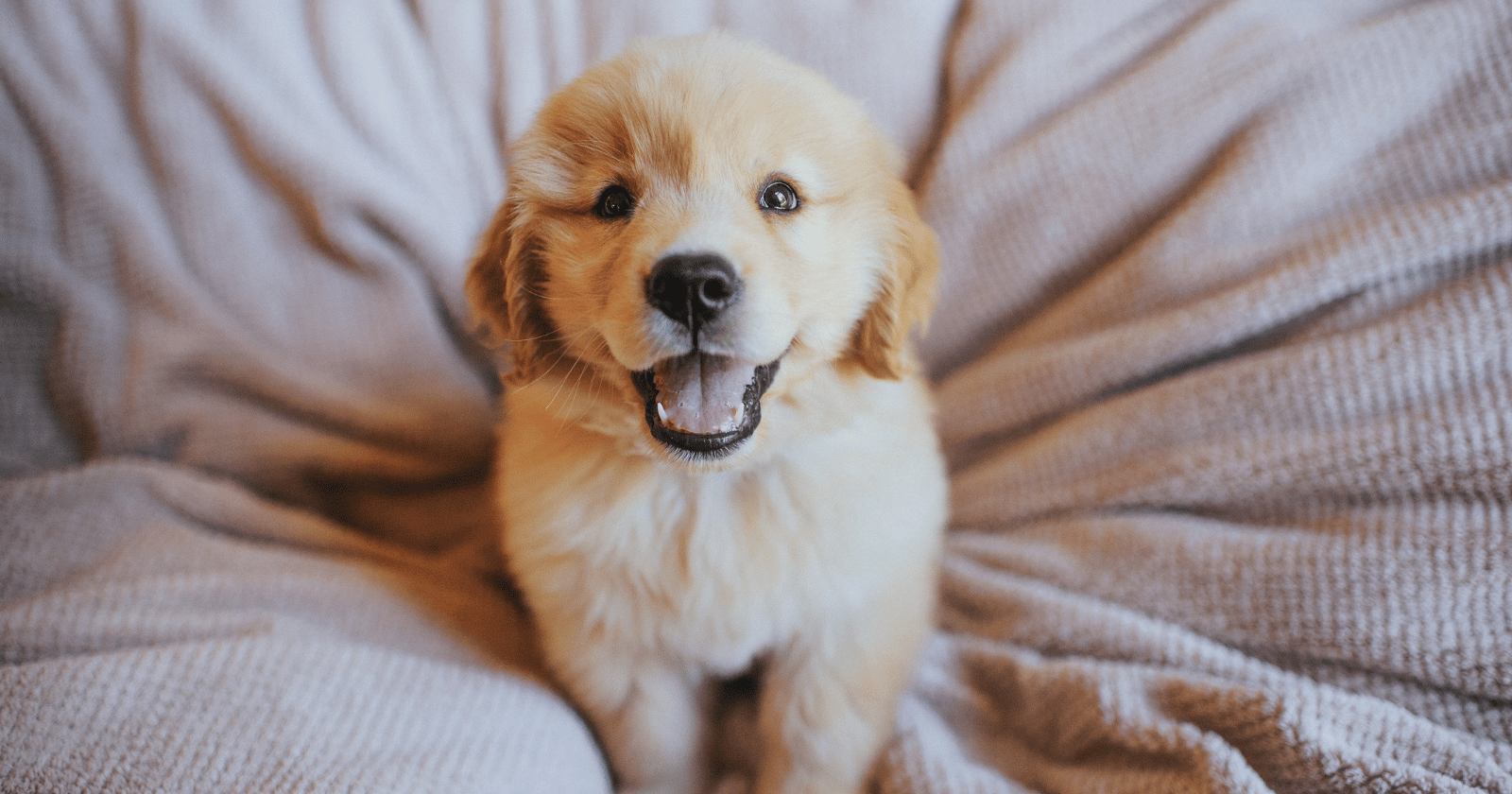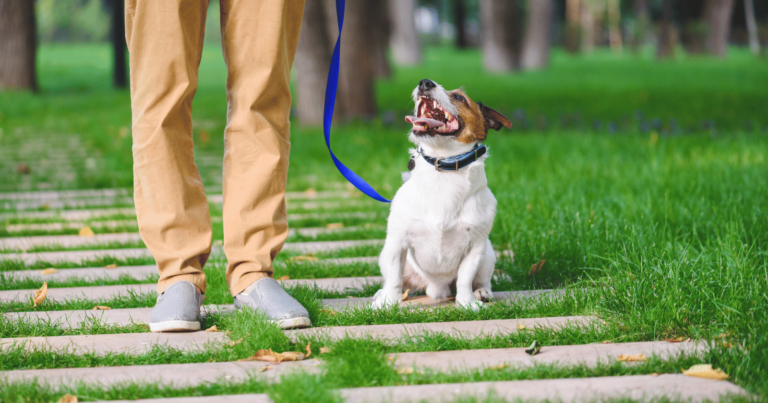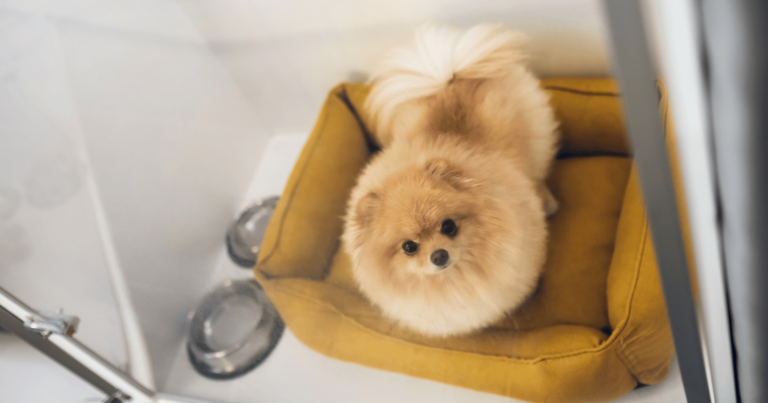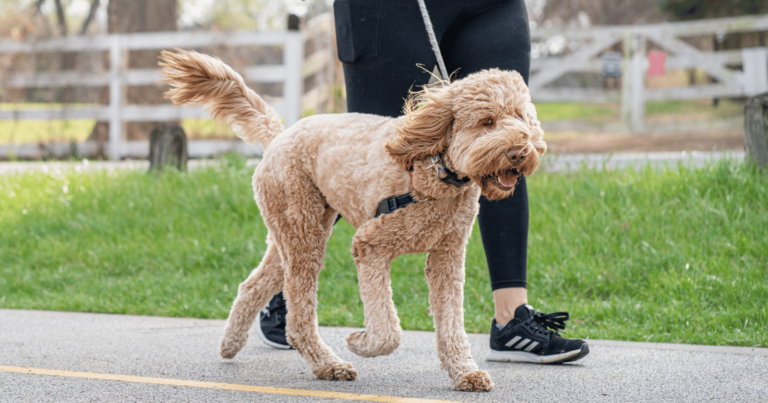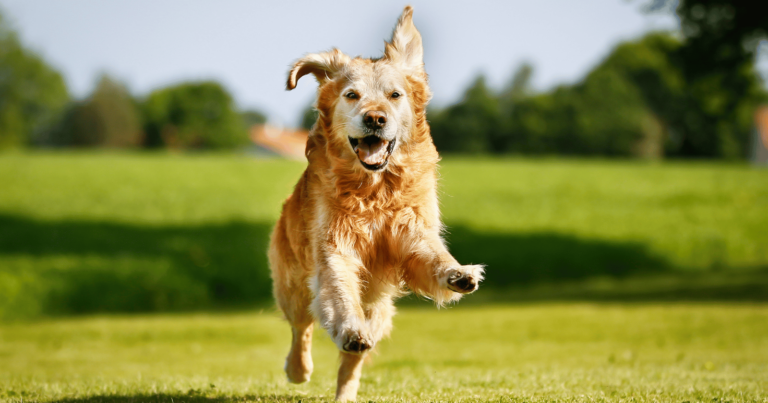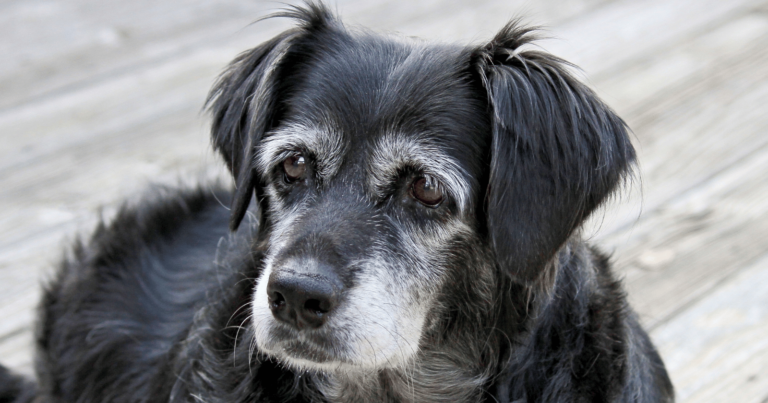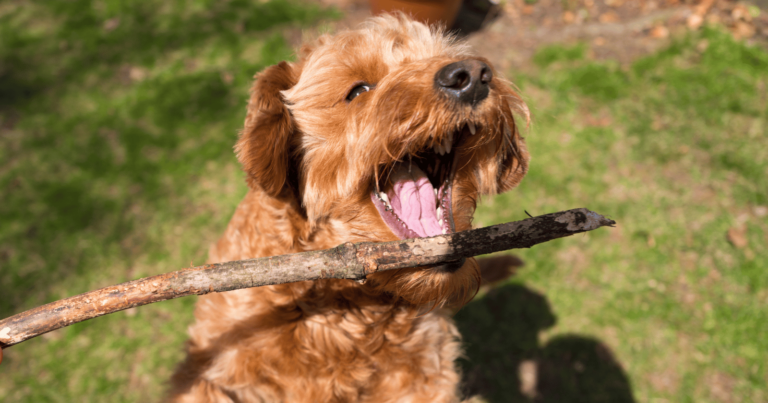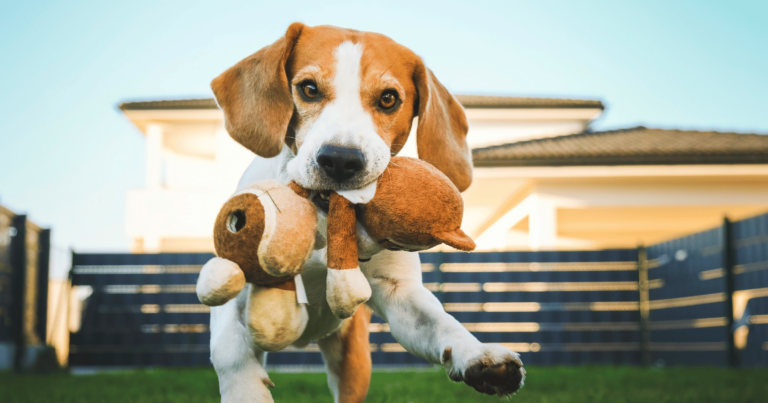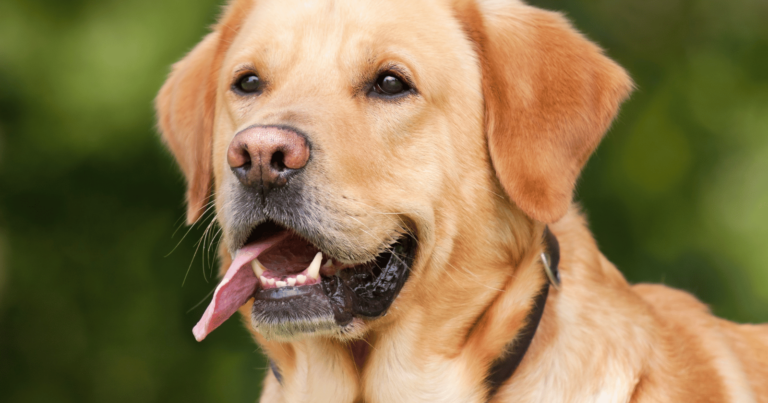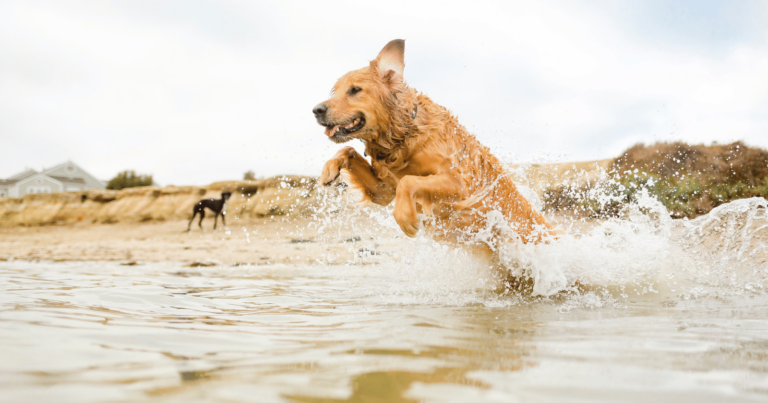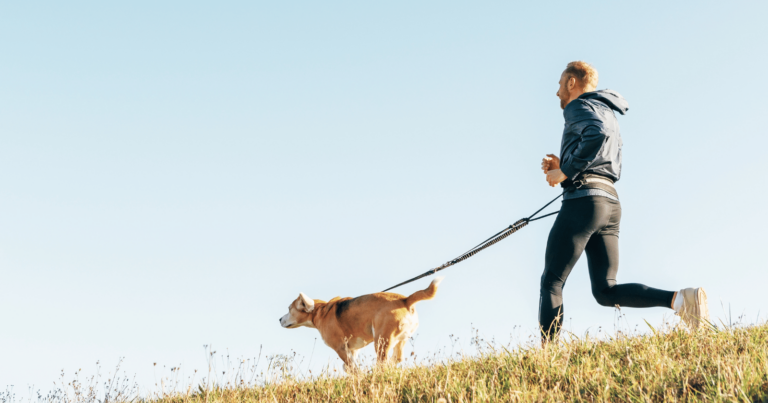Bringing home a new puppy is like welcoming a ball of joy into your life.
But this little bundle of happiness comes with its own set of responsibilities.
Taking care of a puppy isn’t just about cuddles and playtime; it’s about understanding their needs, providing a safe environment, and setting the foundation for healthy habits.
I’m here to guide you through your new journey with your furry friend.
With these 8 useful tips, you’ll know exactly how to care for your puppy and ensure they grow into a happy, healthy dog.
1. Puppy proofing
Just like baby proofing a house, puppy proofing is equally essential when you bring home your little furball.
Puppies are inquisitive and have a knack for finding trouble.
All those loose wires, sharp corners, and small objects lying around your house?
They are potential hazards for your new pup.
Your puppy’s safety is paramount, and ensuring your home is a secure environment is the first step to good pet parenting.
Start by removing anything that could be harmful to your puppy or things you wouldn’t want to get chewed up.
Lock away cleaning supplies, cover electrical outlets, and keep trash cans out of reach.
Preparing your home for a puppy isn’t just about protecting them; it’s also about setting them up for success.
So, put on your ‘puppy glasses’ and start puppy proofing!
But always remember that supervision is key to keeping your new pet safe.
2. Establishing a routine
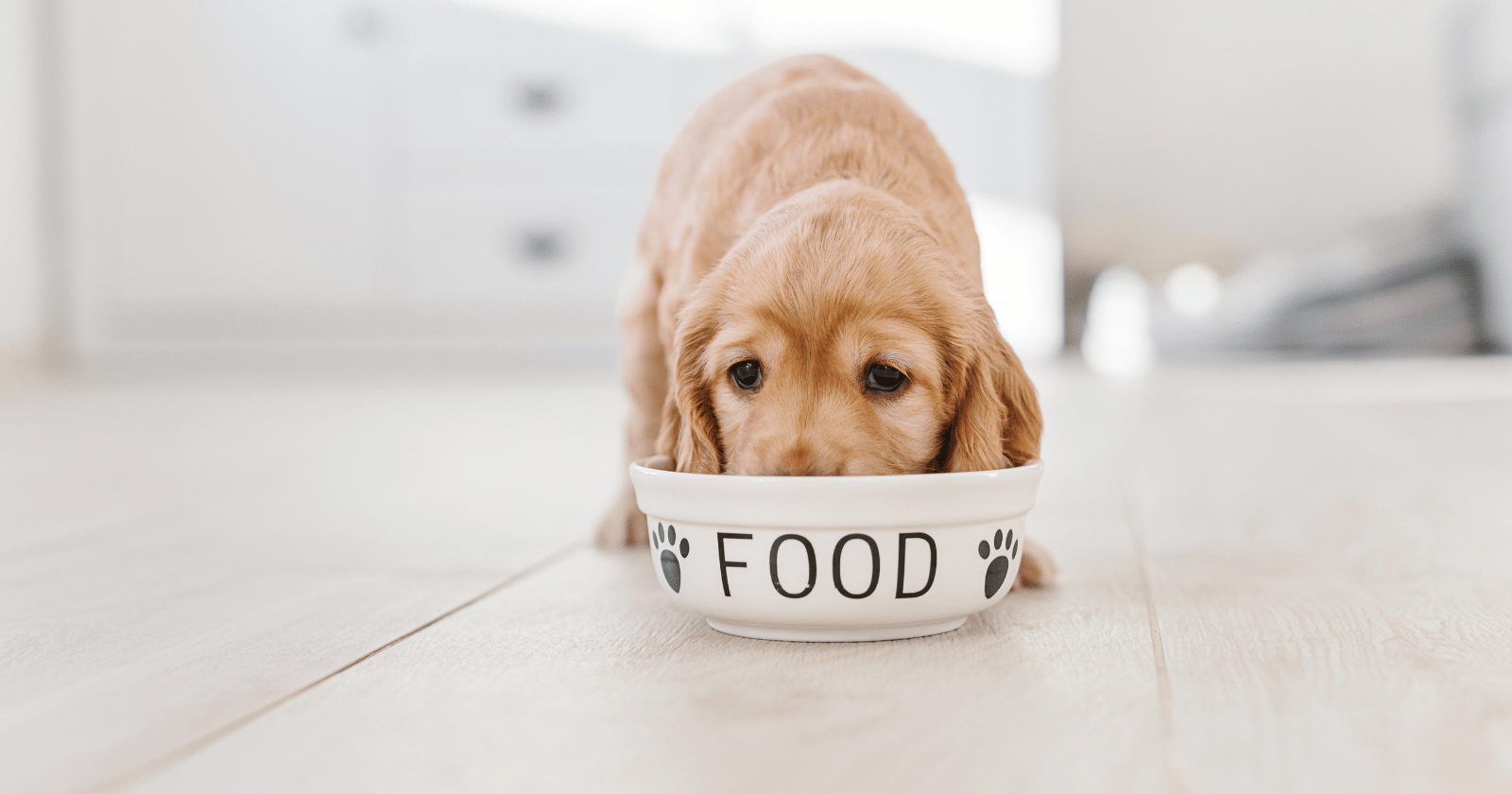
I recall when I brought home my first puppy, a lively Golden Retriever named Felix.
It was an exciting time, but I soon realized the importance of establishing a routine.
Puppies thrive on routines.
Regular feeding times, consistent potty breaks, and a set sleeping schedule can make your puppy feel secure and help them adjust to their new home.
I started by feeding Felix at the same times every day.
This not only helped regulate his digestion but also gave me a predictable window for his potty breaks.
Gradually, Felix began to understand the routine.
He knew when it was time to eat, sleep, and play.
This not only made my life easier but also helped Felix become more confident and well-adjusted.
Remember, routines aren’t rigid rules.
They’re flexible guidelines that help your puppy understand what to expect from their day.
So, be patient as your new pup learns the rhythm of their new life.
3. Socialization is key
Bringing home a puppy isn’t just about taking care of their physical needs.
It’s also about helping them grow into well-rounded dogs.
And a big part of this growth comes from socialization.
Socializing your puppy involves introducing them to various environments, people, and other animals in a safe and positive way.
This helps your puppy learn how to behave in different situations.
Did you know that puppies have a ‘socialization window’ that closes around 16 weeks of age?
This period is critical for shaping your puppy’s future behavior and temperament.
Start socializing your pup as soon as their vaccinations are complete.
Invite friends over, take them to puppy classes, or simply go for walks in different neighborhoods.
The world is a big, exciting place for your new puppy.
With your guidance, it can also be a place they learn to navigate with confidence and ease.
4. Training starts early
Training is an essential part of raising a puppy, and it starts from day one.
Basic commands like “sit,” “stay,” and “come” not only help you manage your pup’s behavior but also keep them safe.
Start with simple commands and gradually work your way up to more complex ones.
Use positive reinforcement like treats, praise, or playtime to reward your puppy for getting it right.
This makes training a fun and rewarding experience for your pup.
Puppies have short attention spans.
Keep training sessions short and fun, and always end on a positive note.
Training isn’t just about teaching your puppy manners; it’s also about building a bond with your new furry friend.
5. Nutrition matters
Feeding your puppy might seem straightforward, but there’s more to it than just filling their bowl.
Puppies grow rapidly, and their diet plays a crucial role in their development.
Choosing the right puppy food is key.
Look for food specifically formulated for puppies, as they have different nutritional needs than adult dogs.
The right food should support your puppy’s growth and help them stay healthy.
How much and how often to feed your puppy can also be a bit of a puzzle.
Generally, puppies need to eat more often than adult dogs – about three to four times a day.
But the exact amount depends on their size, breed, and age.
Remember, overfeeding or underfeeding your puppy can lead to health problems.
So, it’s always a good idea to consult with your vet about the best diet for your puppy.
6. Love and affection
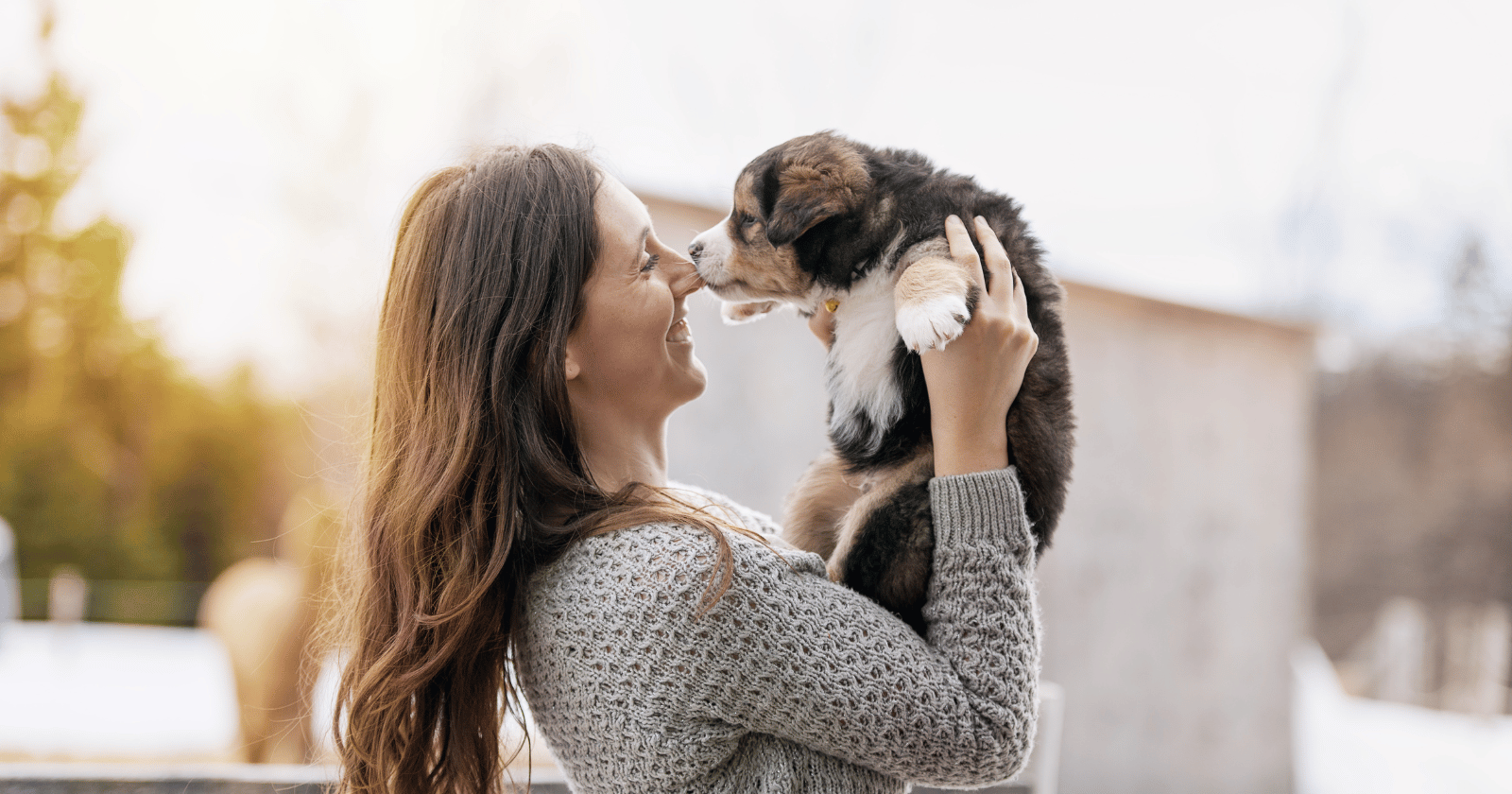
At the end of the day, your puppy isn’t just a responsibility; they’re an addition to your family.
And just like any family member, they need love and affection.
Puppies are little bundles of love, and they crave your attention.
A gentle cuddle, a belly rub, or simply spending quality time together can mean the world to them.
But it’s not just about making them feel loved.
These moments of bonding also help build trust and strengthen your relationship with your puppy.
I believe that the bond between a pet parent and their furry friend is one of the most beautiful relationships.
It’s pure, unconditional, and incredibly rewarding.
7. Regular vet check-ups
I remember the first time I took Felix to the vet.
He was just a tiny pup, and I was an anxious pet parent.
But soon, I realized the importance of regular vet visits.
Just like us, puppies need regular health check-ups.
These visits are crucial to monitor your puppy’s growth, ensure they’re up to date on vaccinations, and catch any potential health issues early.
Your vet can also provide valuable advice on nutrition, behavior, and overall puppy care.
They can answer any questions you might have and guide you through this exciting journey.
I won’t lie; vet visits can be stressful for both you and your puppy.
But with time, patience, and a lot of treats, they can become a routine part of your pup’s life.
8. Patience is key
Raising a puppy can be a rollercoaster ride.
There will be days filled with joy and laughter, and then there will be days filled with chewed up shoes and “accidents” on the carpet.
But remember, your puppy is just learning about the world around them.
They’re bound to make mistakes, and that’s okay.
Your patience during these times is crucial.
Instead of getting upset, use these instances as learning opportunities.
Guide your puppy gently and let them know what’s expected of them.
I always remind myself that every challenge is a part of the journey, every mess is a memory in the making, and every mistake is a step towards growth.
Enjoy the journey
The journey of raising a puppy is not just about fulfilling duties; it’s intertwined with the beautiful process of bonding.
This bond between a pet parent and their furry friend is not a one-sided affair.
It’s a reciprocal relationship that transcends the boundaries of language.
So, as you navigate through this journey of raising your puppy, remember to pause and connect.
Look into their eyes, speak their silent language, and feel the bond.
After all, this bond is not just about companionship; it’s about a shared life, filled with unconditional love and unspoken understanding.
A bond that makes every challenge worth it and turns every moment into a cherished memory.


